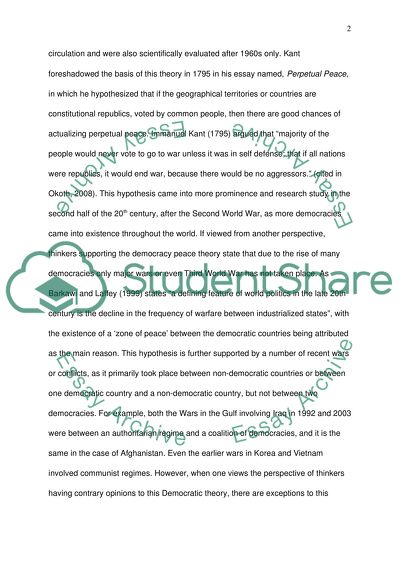Cite this document
(“Demoracy and War Research Paper Example | Topics and Well Written Essays - 1500 words”, n.d.)
Retrieved from https://studentshare.org/history/1436272-the-theoretical-bases-for-the-hypothesis-regarding
Retrieved from https://studentshare.org/history/1436272-the-theoretical-bases-for-the-hypothesis-regarding
(Demoracy and War Research Paper Example | Topics and Well Written Essays - 1500 Words)
https://studentshare.org/history/1436272-the-theoretical-bases-for-the-hypothesis-regarding.
https://studentshare.org/history/1436272-the-theoretical-bases-for-the-hypothesis-regarding.
“Demoracy and War Research Paper Example | Topics and Well Written Essays - 1500 Words”, n.d. https://studentshare.org/history/1436272-the-theoretical-bases-for-the-hypothesis-regarding.


